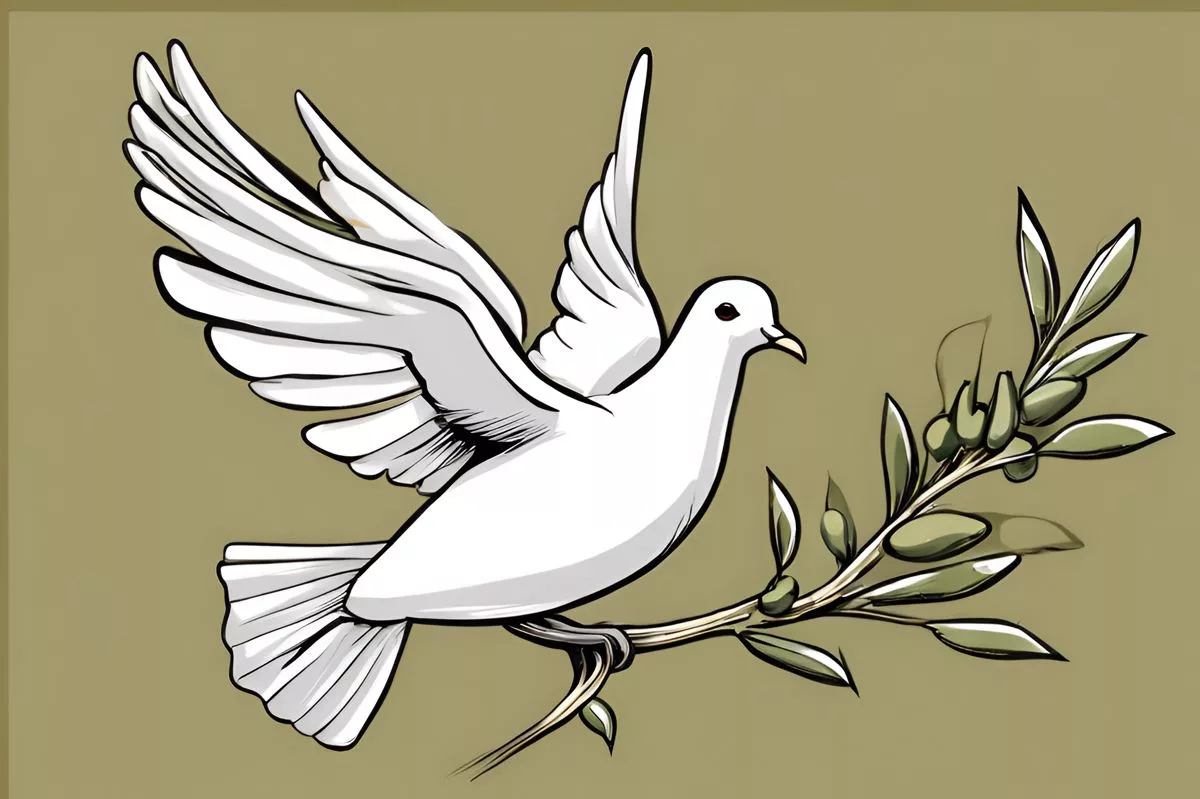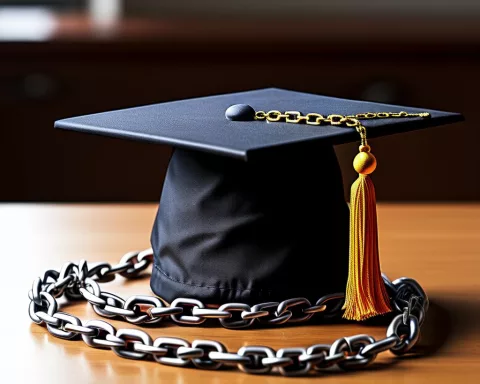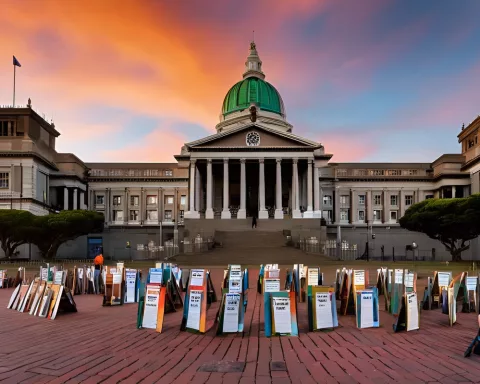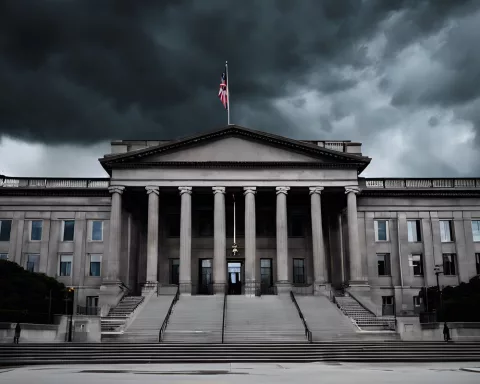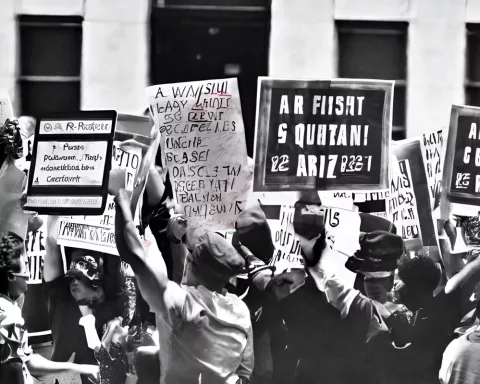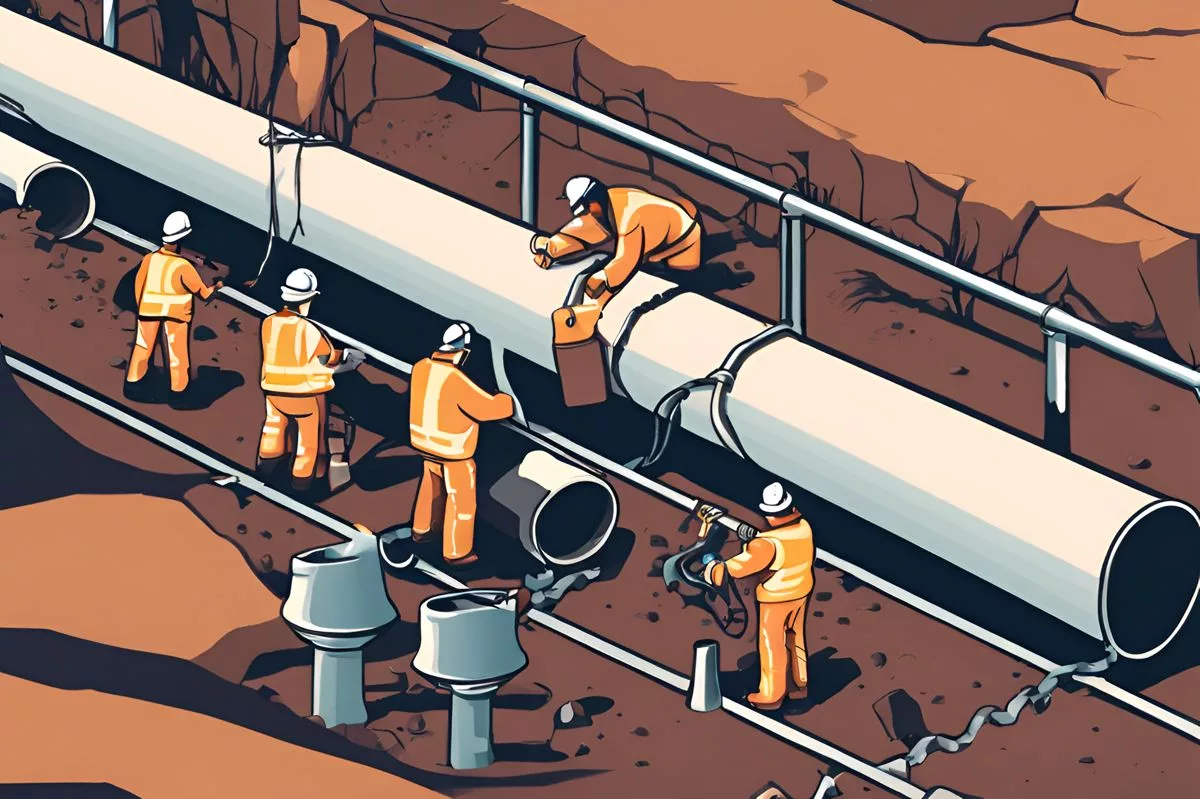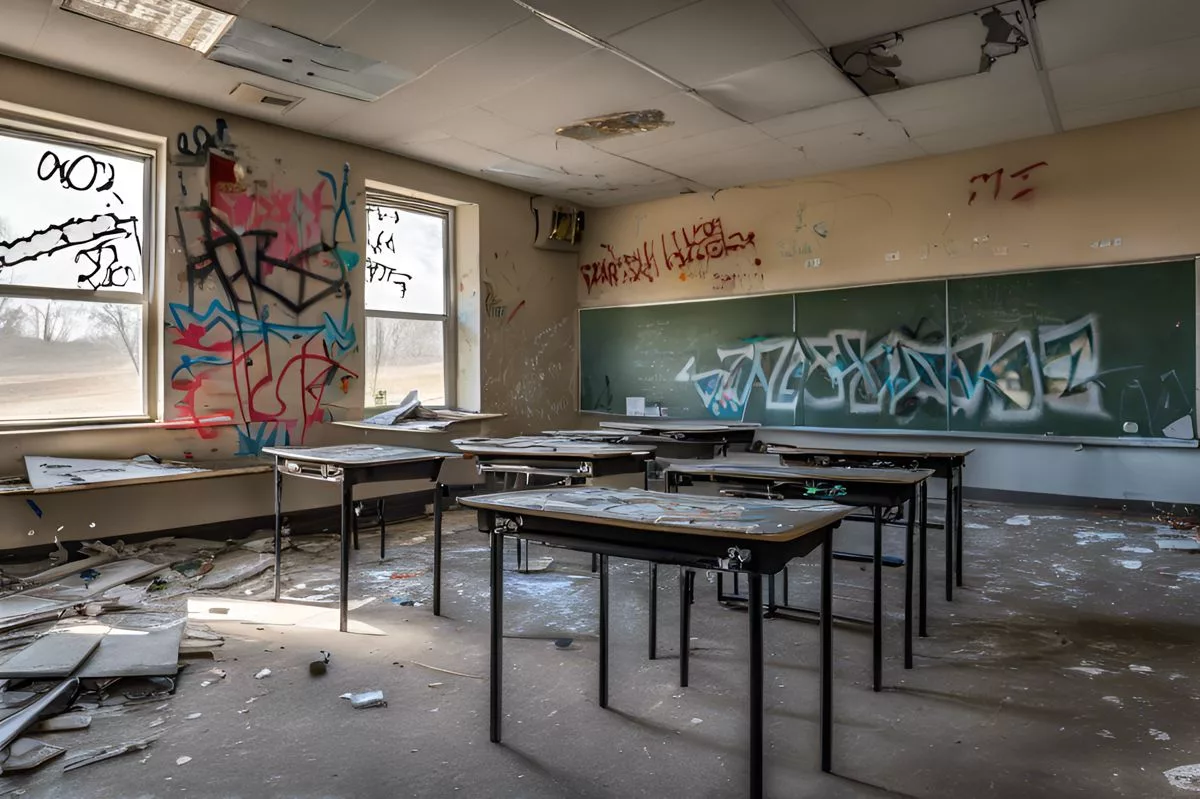Thousands of people gathered in Cape Town to protest against the ongoing crisis in Gaza, particularly the Rafah invasion. South Africa has taken a significant role in the crisis, with the International Court of Justice commanding Israel to cease military campaigns in the Rafah Governorate. The human cost of the conflict has been horrific, with approximately 35,000 Palestinians, mainly women and children, falling victim to the war. The Cape Town protest was a powerful demonstration of unity and dedication to halt the assault on Gaza and liberate Palestine.
South Africa has taken a significant role in the ongoing crisis in Gaza, with the International Court of Justice commanding Israel to cease military campaigns in the Rafah Governorate. South African President Cyril Ramaphosa expressed approval for the ICJ’s directive and castigated Israel’s limitation on aid. The human price of the discord has been horrifying, with approximately 35,000 Palestinians falling prey to the war and the majority being women and children. The Cape Town protest was a powerful demonstration of unity and dedication to halt the assault on Gaza and liberate Palestine.
On a clear Saturday morning in Cape Town, a sea of people assembled to passionately voice their protest against the ongoing crisis in Gaza, especially the Rafah invasion. The demonstration was a tangible reflection of global anxiety and occurred in the midst of a week during which several actions against Israel took place, with South Africa assuming a significant role.
The International Court of Justice (ICJ), responsive to a case initiated by South Africa, commanded Israel to cease its military campaign and any other activity in the Rafah Governorate. The grave allegation of initiating conditions that could result in a ‘physical annihilation’ of the Palestinian population in Gaza was vehemently repudiated by the Israeli government, branding the accusations as ‘absurd, scandalous, and ethically repulsive’.
South Africa’s Stand: A Beacon of Hope in Bleak Times
Unfettered by the rebuff, South African President Cyril Ramaphosa expressed approval for the ICJ’s directive. His primary concern was the plight of the Palestinians in Gaza, who were enduring their seventh month of collective punishment. He castigated Israel’s limitation on aid, claiming it was ‘strategically targeted’. This lawsuit, Ramaphosa stated, aimed to acknowledge and alleviate the distress of ordinary Palestinians.
Simultaneously, International Criminal Court (ICC) prosecutor Karim Kahn initiated a separate attack, demanding arrest warrants for Israeli Prime Minister Benjamin Netanyahu, Minister of Defence Yoav Gallant, and three Hamas leaders, alleging war crimes and crimes against humanity. This action incited a counter-attack from Netanyahu, who promptly accused Kahn of antisemitism.
The Human Cost: The Harrowing Consequences of the Conflict
The human price of the discord has been horrifying. From October 7 onwards, approximately 35,000 Palestinians in Gaza have fallen prey to the war, the majority being women and children. There are numerous others whose whereabouts remain unknown, their end obscured in the turmoil of war-torn Gaza.
Tragically, it is approximated that 60-70% of those killed in Gaza are innocent civilians. The death toll tragically also includes Israelis. On October 7, more than 1000 Israelis were killed, and close to 500 individuals, predominantly Palestinians, were killed in the West Bank. Israel mourned the death of nearly 260 soldiers, while in other regions, like Lebanon, over 100 people perished.
An Unyielding Resolve: Cape Town Marches for Gaza
These bitter truths resonated with those parading through Cape Town. Wielding posters and the strength of their voices, they marched from Muir Street Mosque in District Six to the Provincial Legislature. The Muslim Judicial Council (MJC) and the Al-Quds Foundation, with support from the Palestine Solidarity Campaign (PSC) and political factions like ANC, GOOD, PAC, and Al-Jama-ah, organized the rally.
In a powerful demonstration of unity and dedication, numerous political parties signed a Boycott, Divestment, and Sanctions (BDS) pledge outside the provincial legislature. Protestors were encouraged to use their vote as a weapon against parties in alliance with Israel.
Sheikh Ebrahim Gabriels of the Al-Quds Foundation addressed the crowd, his speech a beacon of hope and rebellion against the oppressors. He proclaimed that the apartheid state of Israel would collapse and that they would one day traverse a liberated Palestine.
Usuf Chikte of the PSC stood at the center of the crowd. His message was transparent: Halt the assault on Gaza. Allow unhindered aid flow. Liberate Palestine. The crowd echoed their agreement, their chants reverberating through the streets of Cape Town, a testament to their relentless determination.
Throughout history, civilizations have frequently found themselves on the brink of monumental change and challenges. The ongoing crisis in Gaza is a stark reminder of our shared accountability. As the world observes, South Africa, a consistent champion of liberty, is spearheading the campaign to restore justice and peace in a region long ravaged by conflict.
1. What was the purpose of the protest in Cape Town?
The protest in Cape Town was held to voice their protest against the ongoing crisis in Gaza, particularly the Rafah invasion, and to show unity and dedication to halt the assault on Gaza and liberate Palestine.
2. What role has South Africa played in the Gaza crisis?
South Africa has taken a significant role in the ongoing crisis in Gaza by initiating a case with the International Court of Justice (ICJ) commanding Israel to cease its military campaign and any other activity in the Rafah Governorate. The South African President has also expressed approval for the ICJ’s directive and castigated Israel’s limitation on aid.
3. What is the human cost of the Gaza conflict?
Approximately 35,000 Palestinians in Gaza have fallen prey to the war since October 7, the majority being women and children. There are also numerous others whose whereabouts remain unknown, their end obscured in the turmoil of war-torn Gaza.
4. What action did the International Criminal Court (ICC) initiate?
The ICC prosecutor Karim Kahn initiated a separate attack, demanding arrest warrants for Israeli Prime Minister Benjamin Netanyahu, Minister of Defence Yoav Gallant, and three Hamas leaders, alleging war crimes and crimes against humanity.
5. What was the message of Sheikh Ebrahim Gabriels of the Al-Quds Foundation?
Sheikh Ebrahim Gabriels of the Al-Quds Foundation addressed the crowd, his speech a beacon of hope and rebellion against the oppressors. He proclaimed that the apartheid state of Israel would collapse and that they would one day traverse a liberated Palestine.
6. What is the Boycott, Divestment, and Sanctions (BDS) pledge?
Numerous political parties signed a Boycott, Divestment, and Sanctions (BDS) pledge outside the provincial legislature. Protestors were encouraged to use their vote as a weapon against parties in alliance with Israel.

